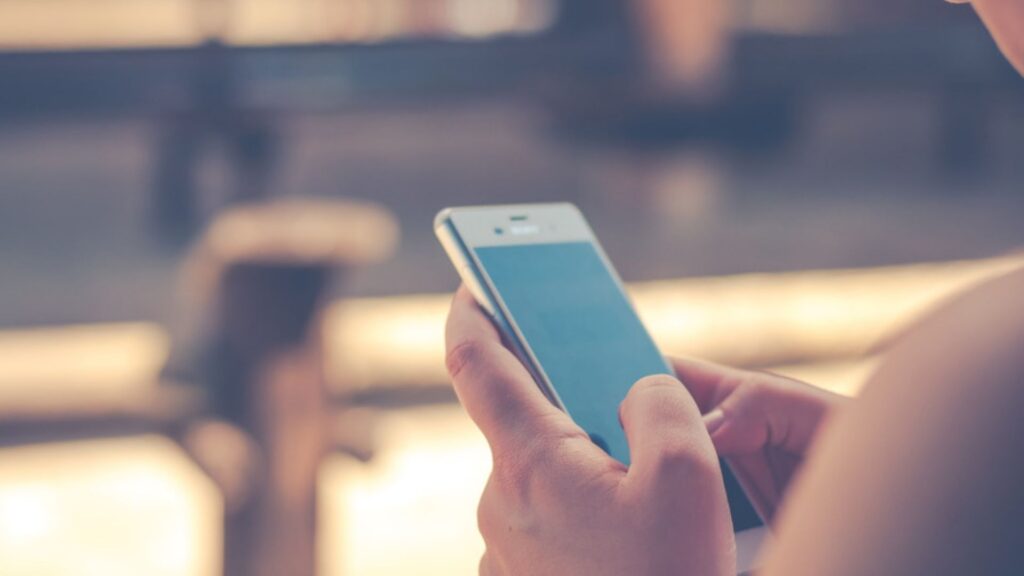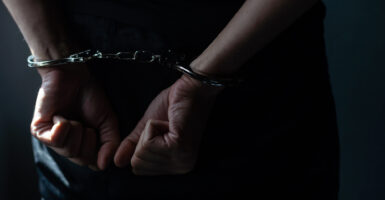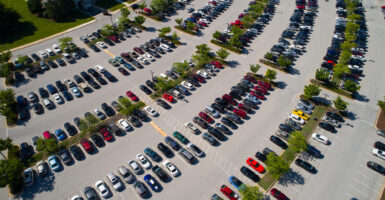California High School No Longer Allows Students To Bring Cell Phones Into School
A Fresno high school recently banned cell phones, which appears to be connected to an alleged made up hate crime last year.

A Fresno high school has decided to ban students from bringing cell phones to school. While school officials claim that the measure was designed to help teens focus, many families are angered by the decision. This comes just after a controversial photo was taken by students during class last May and led to an investigation which some say is the true reason for the cell phone ban.
Near the end of this past school year, a Bullard High School student was photographed with what looked like a KKK hood on his head. The image sparked outrage and students at the school, and other Fresno high school locations in the district staged a walk-out in protest of the school’s slow reaction. Parents met with administrators to decry racism and district officials continued their investigation in a more timely manner.
Instead of expelling the boy photographed in the school weight room, those who took the picture and posted it were reprimanded. Some at the Fresno high school believe the new cell phone ban is an effort to further silence students who record racist or other harmful conduct carried out on campus, but the details are more complex. The student in the controversial image, which caught media attention, claimed that he was tricked into posing for the photo by a group of students, and had no knowledge of what would be produced and circulated. The boy’s family sought legal aid and found a settlement with the Fresno high school which prevented him from being expelled.
From Bubba Wallace to Jussie Smollette, racially charged hate crime hoaxes have become common. The Fresno high school agreed that the student in question had been set up, and punished those who led him into the sensitive situation, and now the Fresno high school is banning cell phones in the classroom. Students and parents who oppose this measure fear that children who witness true crimes or harassment will not be as equipped to document it for legal purposes, and there is also a national concern acknowledging that in dangerous situations — like school shootings or other incidents — cell phones are often parents only line of communication with their children and children’s best way to seek outside help.
Just as might be the case with this one at Fresno high school, many “racist” attacks carried out in recent years have been revealed to be hoaxes. In 2016 a Muslim woman claimed that a man threatened to light her on fire after President Trump was elected. She received national support and even press from the Washington Post, but later admitted she made the incident up. In 2017 The Washington Post again reported on an alleged incident at St. Olaf College where racist letters were sent out to black students, but an investigation found that a black student had written and distributed them.
By July of 2018 so many of these incidents had occurred that investigations were revealing numerous hate crime hoaxes, including one where a Mexican waitress faked a racist note to herself. The Washington Post again gave national attention to a 2019 hate crime hoax against Native Americans at the March for Life which displayed a selectively edited video of a Native American beating his drum at a group of rowdy college boys from a Catholic school. He claimed that they swarmed him, but the unedited video showed just the opposite, that he approached the pro-life students and harassed them. Whether the Fresno high school incident was truly a hoax or not is still unsettled with some students.

The Fresno High School is sticking to its cell phone ban for now. Students and parents who oppose the new policy have created a petition and may seek legal aid. Tensions are rising and the prospect of another student walkout is uncertain.



